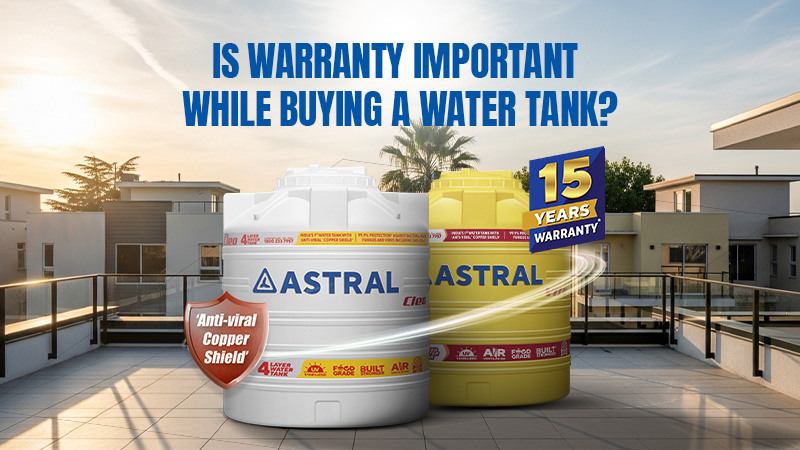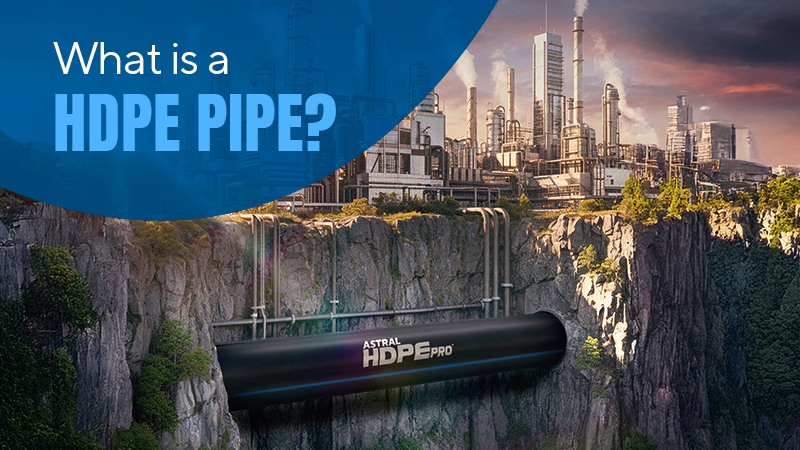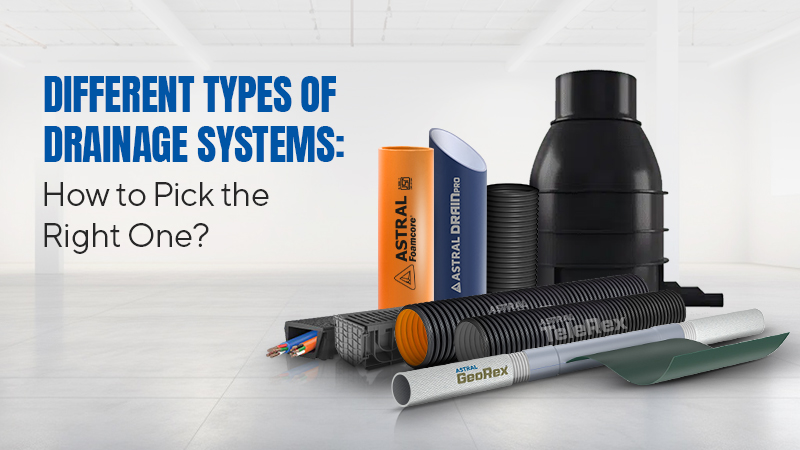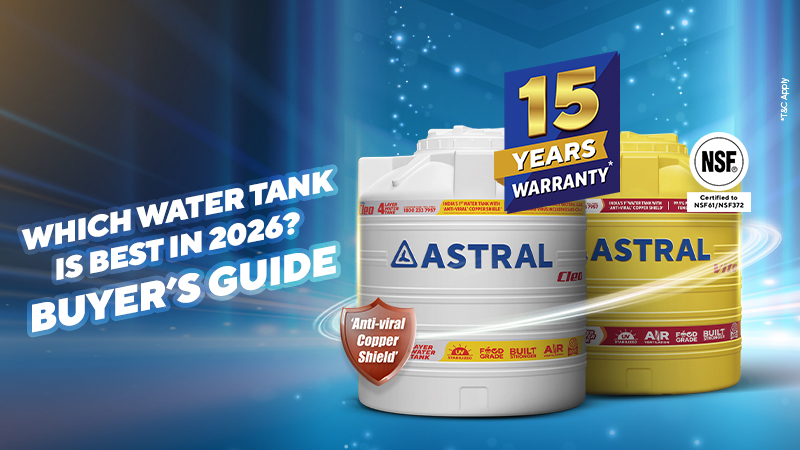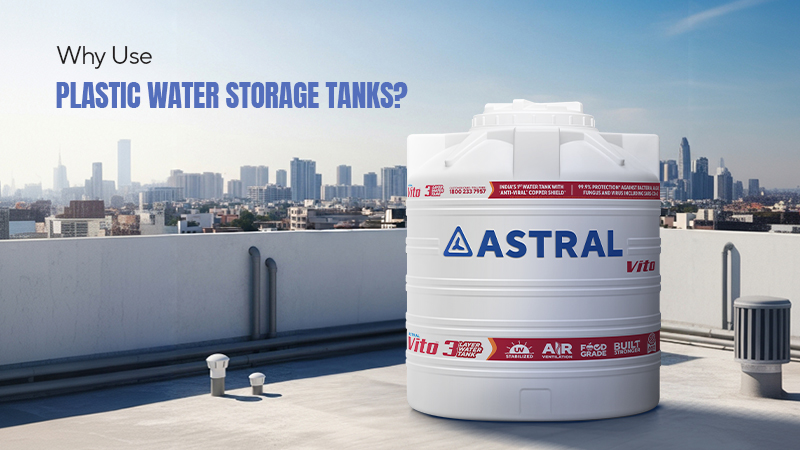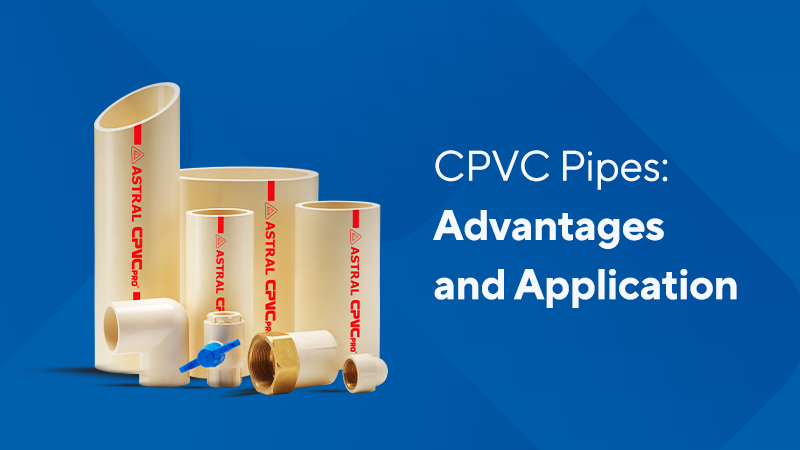
19 May 2025
CPVC Pipes Advantages and Applications
CPVC pipes replaced older metal pipes in homes quite swiftly. With improved make and design, they meet the modern needs for water quality, pressure and temperature. Where traditional metal pipes often struggled with corrosion, leaks and inefficiency, CPVC pipes offered a more reliable solution. New homeowners and builders stick to CPVC for its quality and flexibility. These pipes are lighter, stronger and more heat-resistant than traditional pipes, making them the ideal choice for modern plumbing systems. This blog will learn what is cpvc pipe, the key advantages of CPVC pipes and their various applications. It will help you understand why they are the preferred choice for modern plumbing.
What is CPVC Pipe?
CPVC pipe stands for Chlorinated Polyvinyl Chloride pipe. It is a type of plastic pipe made by adding chlorine to regular PVC. This process makes the CPVC pipe more resistant to heat and chemicals. CPVC pipes can handle hot water up to 93°C and high water pressure. Unlike metal pipes, CPVC does not rust, scale or react with chemicals in the water. Its smooth inner surface keeps water flowing freely and helps stop bacteria from building up. That is the reason why CPVC pipe is widely used in property insurance claims for plumbing repairs, as it meets modern safety and durability standards.
Key Advantages of CPVC Pipes
Let’s explore the main advantages of using CPVC pipes.
1. Long Lifespan
A CPVC pipe is designed to resist rust, scaling and pitting for over 50 years, which often shortens the lifespan of metal pipes. Their durability means fewer repairs and replacements, saving time and money.
2. Heat and Chemical Resistance
CPVC’s ability to handle hot water up to 93°C makes it the best option for geysers, solar heaters and hot water systems. It also resists chemicals, acids and alkalis, which makes it suitable for municipal water, industrial fluids and aggressive chemicals. This resistance ensures system reliability even in harsh environments.
3. Easy Installation
Lightweight and simple to handle, CPVC pipes reduce labour costs significantly. The solvent welding process creates strong, leak-proof joints, speeding up installation and reducing disruption during upgrades or repairs.
4. Safety and Sustainability
CPVC pipes are self-extinguishing, with a high Limiting Oxygen Index (LOI). This is one of the main reasons for choosing CPVC pipes for fire-prone areas, as they are much safer than other plumbing materials. Their smooth surface discourages bacterial growth and scaling, which ensures clean water.
5. Cost-Effective
Although the initial cost may be slightly higher, CPVC’s long life and low maintenance requirements make it a cost-effective choice. Reduced repairs and replacements translate into savings over the system’s lifetime.
6. UV Resistance
CPVC pipes are highly resistant to ultraviolet rays, which is ideal for outdoor applications exposed to sunlight. They maintain their strength and performance over time, even in challenging environments.
Top Applications of CPVC Pipes
The versatility of CPVC pipes is evident in their extensive use across residential, commercial and industrial sectors, where durability and safety are paramount.
1. Residential Plumbing
CPVC pipes are extensively used in homes for hot and cold water distribution. Their capacity to withstand pressure and temperature fluctuations makes them suitable for high-rise apartments and standalone houses alike. They are ideal for hot water lines, such as in geysers and kitchen sinks.
2. Solar Water Heaters
Their high heat resistance makes CPVC pipes the preferred choice for solar water heating systems, especially in areas where solar installations are common.
3. Commercial and Industrial Use
CPVC pipes are used in office buildings, malls and factories for HVAC systems for carrying chilled and hot water. They are also used heavily in industries system like pharmaceuticals and textiles for transporting chemicals safely. CPVC pipes’ chemical resistance and reliability reduce downtime and maintenance costs in demanding environments.
4. Fire Safety Systems
CPVC pipes are increasingly used in fire sprinkler systems for commercial buildings, IT parks and shopping malls. Their self-extinguishing property and compliance with fire safety standards provide an added layer of protection.
5. Cold Region Adaptability
CPVC pipes are resistant to freezing and cracking. This makes it a dependable choice for plumbing systems in colder regions and ensures an uninterrupted water supply throughout the year.
From hot water systems and irrigation to chemical transport and fire safety, there are multiple applications of CPVC pipes. They are the backbone of modern infrastructure for ensuring efficiency and longevity in every project. To ensure a reliable and durable plumbing system, selecting high-quality CPVC pipes from a reputable provider like Astral Pipes is also important for long-term safety.
Why Astral CPVC Pipes are Best in India?
Astral is the No. 1 Pipe brand in India, known for its commitment to innovation and quality. Astral CPVC pipes are manufactured with the highest-grade materials and strict quality checks, meeting the Indian and international standards. Our CPVC pipes offer superior heat and chemical resistance, robust jointing systems and proven performance even in the toughest conditions. With a strong network and decades of trust, Astral is the first choice for builders, architects and homeowners who demand the best for their projects.
Read our blog on Advantages of PVC Pipes and Fittings


